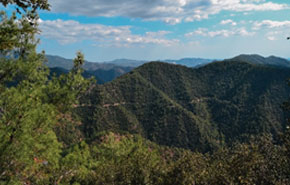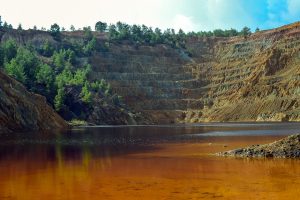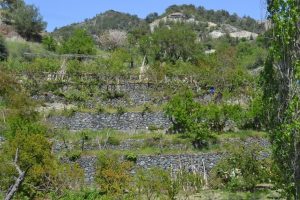 Rural and agricultural development play a key role in maintaining agricultural landscapes that support local economies and biodiversity, as well as giving the island much of its character. During the 2011-2013 revision of CAP, Laona contributed its input regarding the proposals for 2014-2020.
Rural and agricultural development play a key role in maintaining agricultural landscapes that support local economies and biodiversity, as well as giving the island much of its character. During the 2011-2013 revision of CAP, Laona contributed its input regarding the proposals for 2014-2020.
After the experience of an earlier (disastrous) official decision to uproot local wine-producing grape varieties, Laona advocates that CAP funds should be used as an incentive for sustainable production and as a reward for farmers who act as custodians (stewards) of the countryside. A ‘green CAP’ is of particular importance to Cyprus with its small-scale, extensive-type farming and small plot size (median size in mountainous areas is 2.1 ha), while also maintaining the landscapes that attract sensitive visitors to lesser known inland destinations. According to Markou and Kavazis (Agricultural Situation Report of Cyprus and the Market and Trade Policies for Fruit/Vegetable and Olive Oil, Agricultural Research Institute, Nicosia, Cyprus, 2006), more than one third of the farm units possess less than 1 ha and 56% less than 2 ha. Only 6% of the agricultural plots are above 10 ha.
Laona supports local products, and feels that tourism authorities and practitioners do not sufficiently promote the fact that Cyprus is free of GMO crops and has a burgeoning organic farming practice.


 Mines: Within the ambit of its concern for landscape and communities the Foundation conducted a bi-communal project in 2008-09 on the rehabilitation of abandoned mines and quarries. Specialists from both the Greek and Turkish Cypriot communities participated in a Think Tank, which produced a series of recommendations that are still valid and quoted today. In cooperation with the Lefke Platform of Environmental organisations, Laona is investigating the incidence of diseases in the Lefke area where a copper mine was abandoned without sealing, in 1974.
Mines: Within the ambit of its concern for landscape and communities the Foundation conducted a bi-communal project in 2008-09 on the rehabilitation of abandoned mines and quarries. Specialists from both the Greek and Turkish Cypriot communities participated in a Think Tank, which produced a series of recommendations that are still valid and quoted today. In cooperation with the Lefke Platform of Environmental organisations, Laona is investigating the incidence of diseases in the Lefke area where a copper mine was abandoned without sealing, in 1974. Terraces: The issue of abandoned terraced landscapes and their impact not only on farming, but on erosion, water-retention and biodiversity is a particular interest of the Foundation since 2015. It sponsored participants to the 2016 & 2019 World Conferences of ITLA (International Alliance of Terraced Landscapes) and has set up a Think Tank on the future of abandoned terraces in Cyprus on which relevant government departments are represented. The Department of Agriculture has invited the Think Tank to propose a suitable plan of action. Elements under consideration are not only the potential re-use of terraces, but their up-keep, and the Foundation is always on the look-out for grants that will facilitate training of young people in dry stone-walling. The Laona Foundation was among the organisations that supported the application made by seven European countries to include dry-stone walling practises on the UNESCO Intangible Heritage List.
Terraces: The issue of abandoned terraced landscapes and their impact not only on farming, but on erosion, water-retention and biodiversity is a particular interest of the Foundation since 2015. It sponsored participants to the 2016 & 2019 World Conferences of ITLA (International Alliance of Terraced Landscapes) and has set up a Think Tank on the future of abandoned terraces in Cyprus on which relevant government departments are represented. The Department of Agriculture has invited the Think Tank to propose a suitable plan of action. Elements under consideration are not only the potential re-use of terraces, but their up-keep, and the Foundation is always on the look-out for grants that will facilitate training of young people in dry stone-walling. The Laona Foundation was among the organisations that supported the application made by seven European countries to include dry-stone walling practises on the UNESCO Intangible Heritage List.